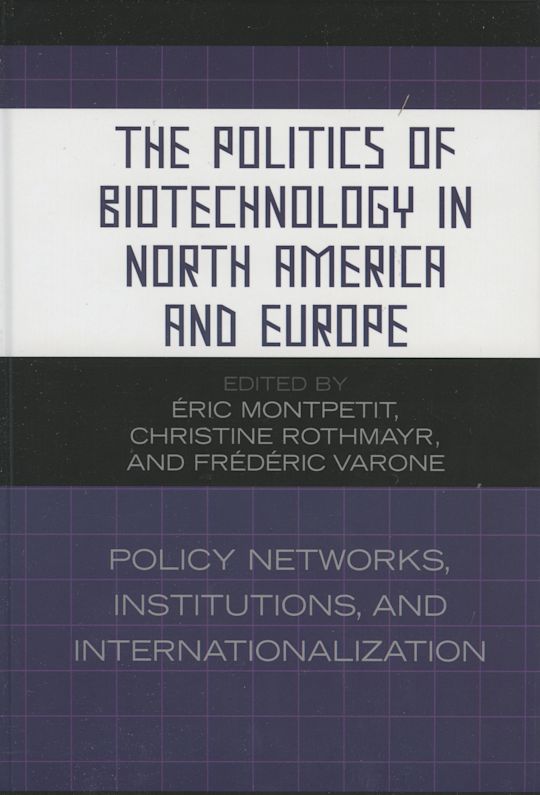The Politics of Biotechnology in North America and Europe
Policy Networks, Institutions and Internationalization
The Politics of Biotechnology in North America and Europe
Policy Networks, Institutions and Internationalization
Description
Biotechnology is one of the most important new issues to emerge in the knowledge economy. The Politics of Biotechnology in North America and Europe provides analysts with a perspective on policy-making in scientifically advanced countries that integrate the insights of several approaches and that display a particular sensitivity to the complexity of policy-making conjectures. This perspective allows going beyond the simplistic understandings of biotechnology policy currently prevailing. This volume provides a rigorous analysis and detailed information on biotechnology policy in nine countries. The essays included here present the results of in-depth empirical research in the area of biomedicine and agro-food biotechnology. The book is, therefore, not only of interest to policy-makers and policy analysts, but also to anyone with an interest in biotechnology.
Table of Contents
Chapter 2 Trade and Human Rights: Inter- and Supranational Regulation of ART and GM Food
Chapter 3 Different Paths to the Same Result: Explaining Permissive Policies in the USA
Chapter 4 The Canadian Knowledge Economy in the Shadow of the United Kingdom and the United States
Chapter 5 A Contrast of Two Sectors in the British Knowledge Economy
Chapter 6 Policy Mediation of Tensions Regarding Biotechnology in France
Chapter 7 ART and GMO Policies in Germany: Effect of Mobilization, Issue-Coupling, and Europeanization
Chapter 8 Accommodation, Bureaucratic Politics, and Supranational Leviathan: ART and GMO Policy-Making in the Netherlands
Chapter 9 Conflict and Consensus in Belgian Biopolicies: GMO Controversy versus Biomedical Self-Regulation
Chapter 10 ARTs and GMOs in Sweden: Explaining the Differences in Policy Design
Chapter 11 Switzerland: Direct Democracy and Non-EU Membership-Different Institutions, Similar Policies
Chapter 12 Regulating ART and GMOs in Europe and North America: A Qualitative Comparative Analysis
Product details
| Published | 19 Dec 2006 |
|---|---|
| Format | Ebook (Epub & Mobi) |
| Edition | 1st |
| Extent | 304 |
| ISBN | 9780739159224 |
| Imprint | Lexington Books |
| Publisher | Bloomsbury Publishing |



































